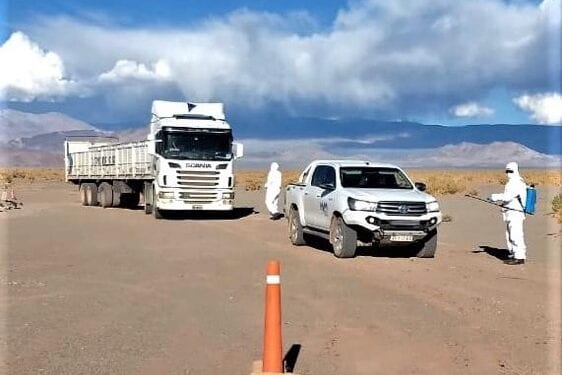Lithium explorer and developer Lake Resources NL (ASX: LKE; OTC:LLKKF) has completed what it describes as a “compelling and robust” Pre-Feasibility Study (PFS) into the technical and economic viability of Lake’s Kachi Lithium Brine Project in Catamarca, Argentina.
Managing Director, Steve Promnitz, said the study demonstrates the project’s potential to deliver high purity product required by battery makers, based on a sustainable and scalable process. (Click here to watch our new video interview with Steve)
Lake’s study focused on the engineering and costing of preferred process design options supported by direct lithium extraction test work by Lilac Solutions, with Hatch appointed to provide engineering and design services.
“This is a major milestone for Lake that allows us to ramp up project development initiatives,” Mr Promnitz said.
“The PFS highlights the cost competitive nature and scale of the flagship Kachi Project using direct extraction, but has the benefit of producing high purity product capable of attracting premium pricing, while being a leader in sustainable lithium desired by Tier-1 electric vehicle makers.
“The PFS together with samples from the pilot plant will help advance discussions with off-takers and financiers.”
Lakes is currently undertaking financing discussions are underway, with the company confident potential for premium pricing for a preferred high purity product assist this process.
The results and the data of the PFS provide a solid basis for these discussions as well as for a definitive feasibility study (DFS).
Lake’s Kachi plan focuses on a long-life, low cost operation with annual production target of 25,500 tonnes of battery grade lithium carbonate by direct extraction using efficient Lilac Solutions technology, based on the Indicated Resource of 1.0 million tonnes LCE1 at 290 mg/L lithium (22% of current total resource).
According to Lilac Solution’s CEO Dave Snydacker, Kachi is a globally important lithium project with its large brine resource and environmentally-friendly process.
“With this PFS, we have demonstrated a non-utilities OPEX of US$2,500 per tonne of lithium carbonate.
“The remaining 40% of OPEX is primarily due to energy from natural gas at US$21/mmBTU. Given the excellent solar resource on site, we have a great opportunity to incorporate solar PV and reduce OPEX.
“Looking at the capital cost structure, we see that 51% of CAPEX is related to site works and contingency, so opportunities exist for cost reduction in upcoming engineering studies. The Lilac team is excited to continue working closely with Lake to progress the development of Kachi.”












